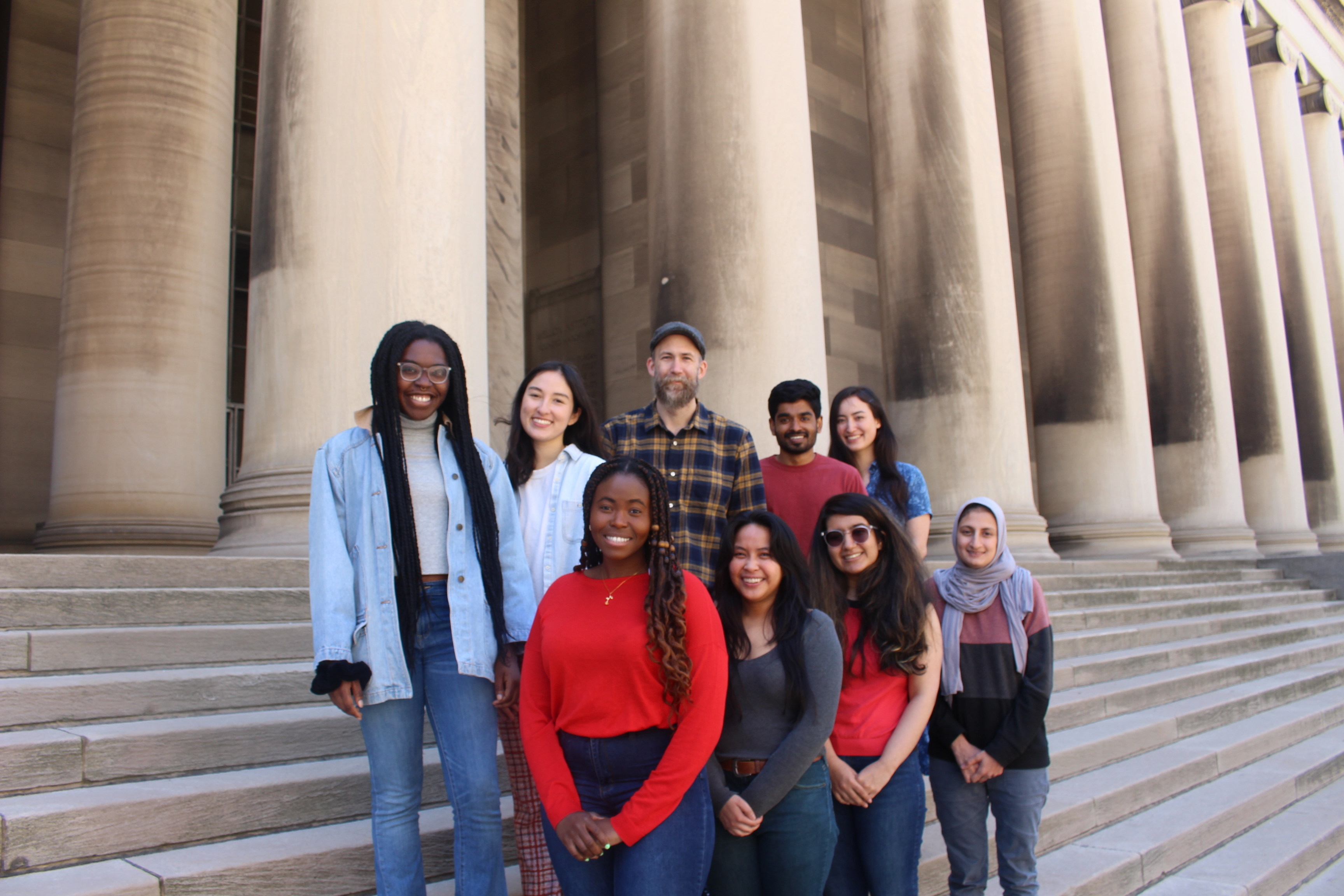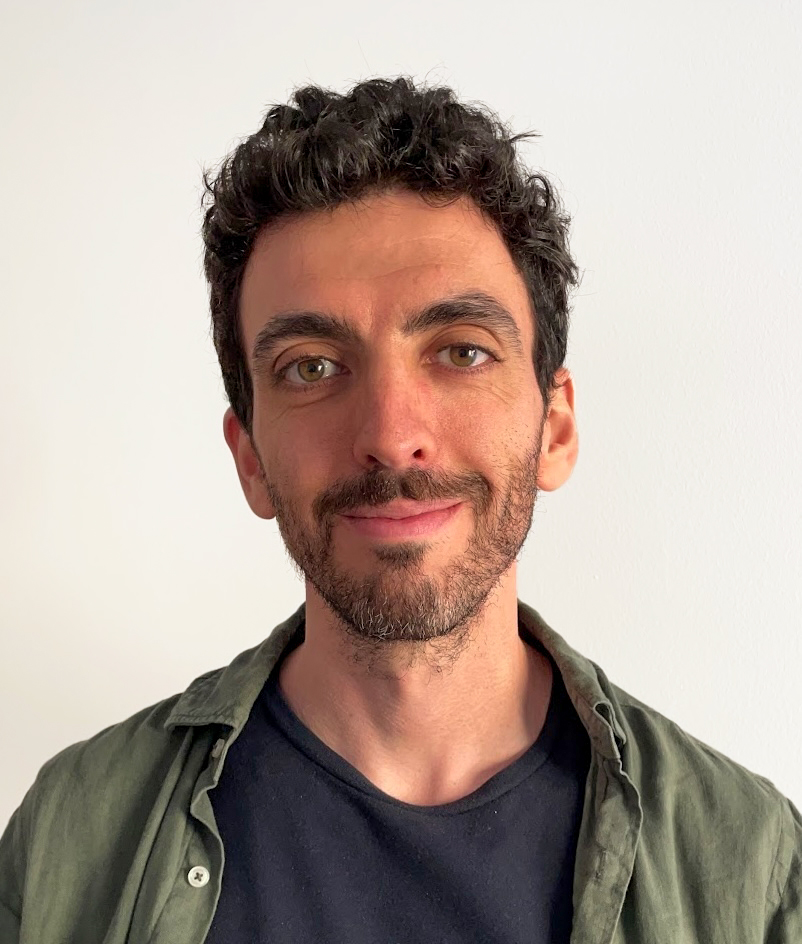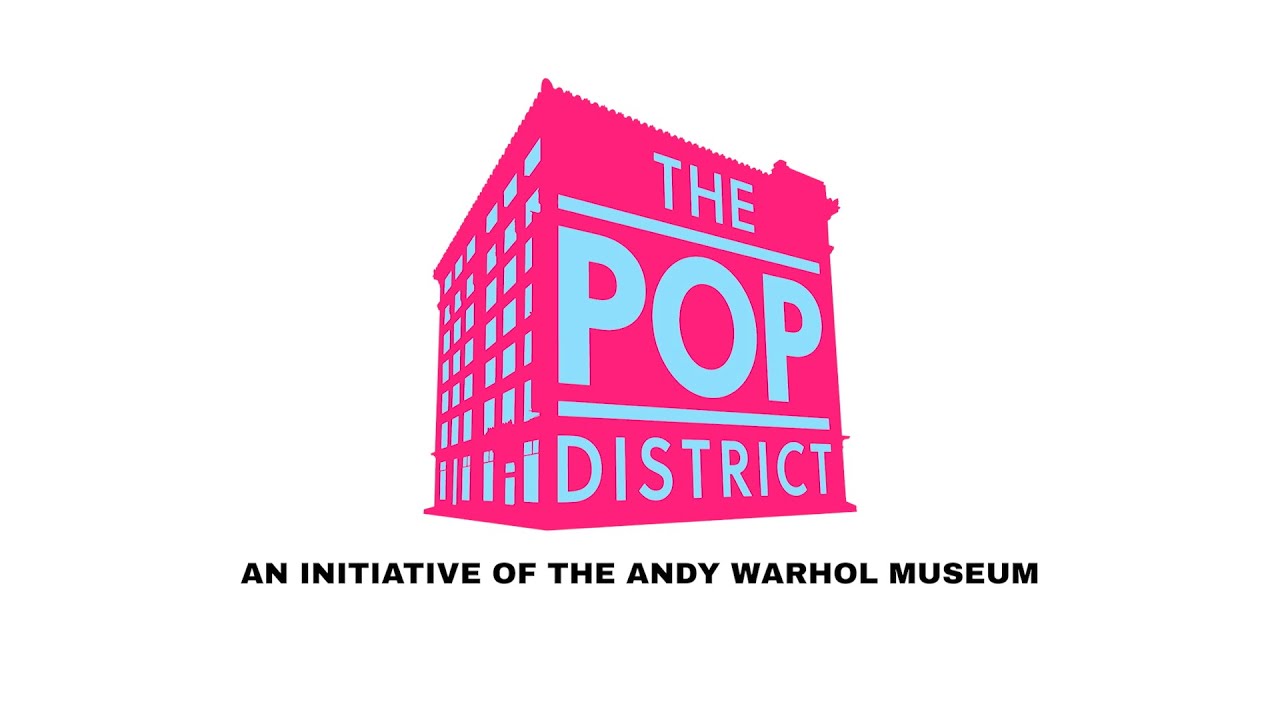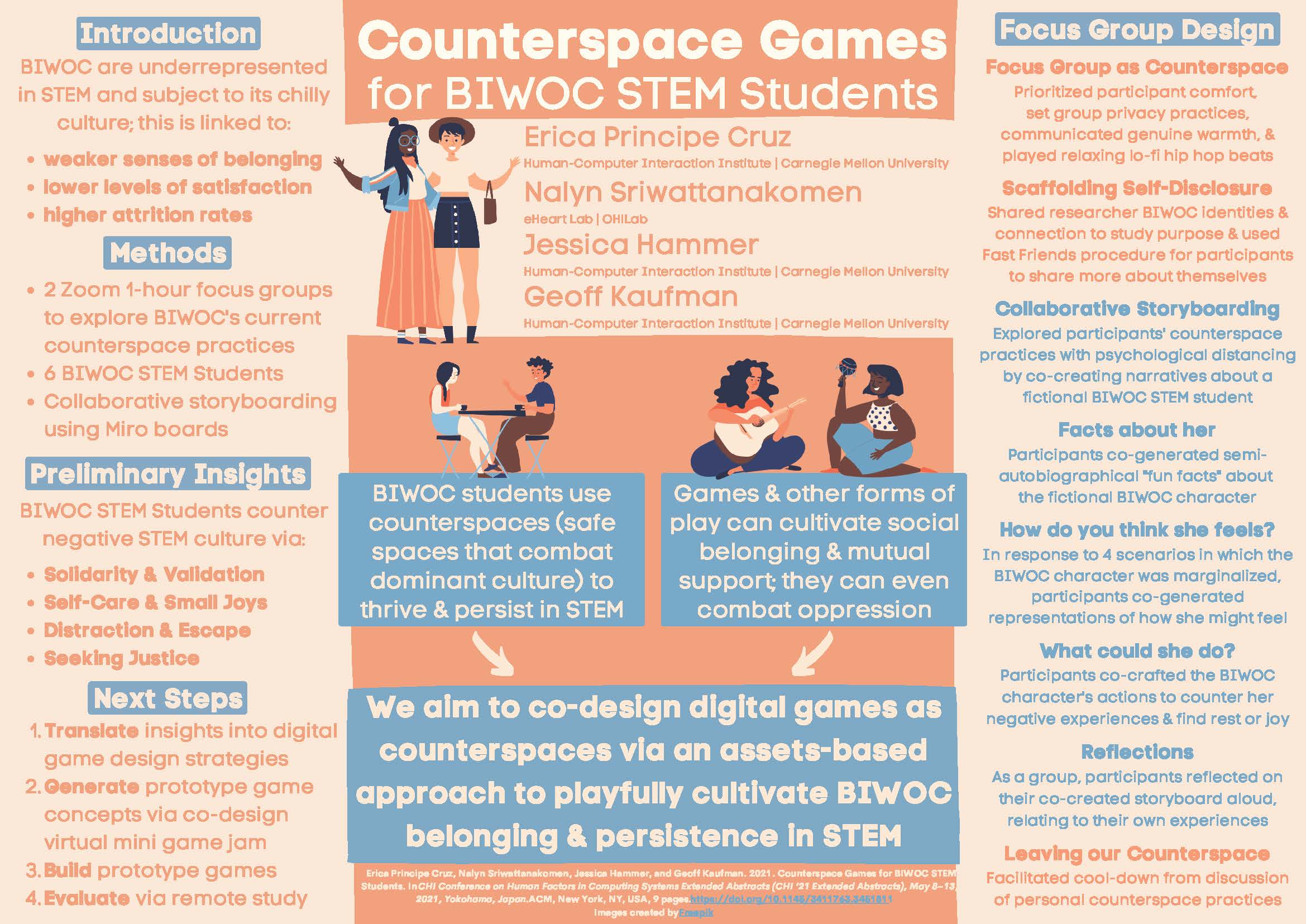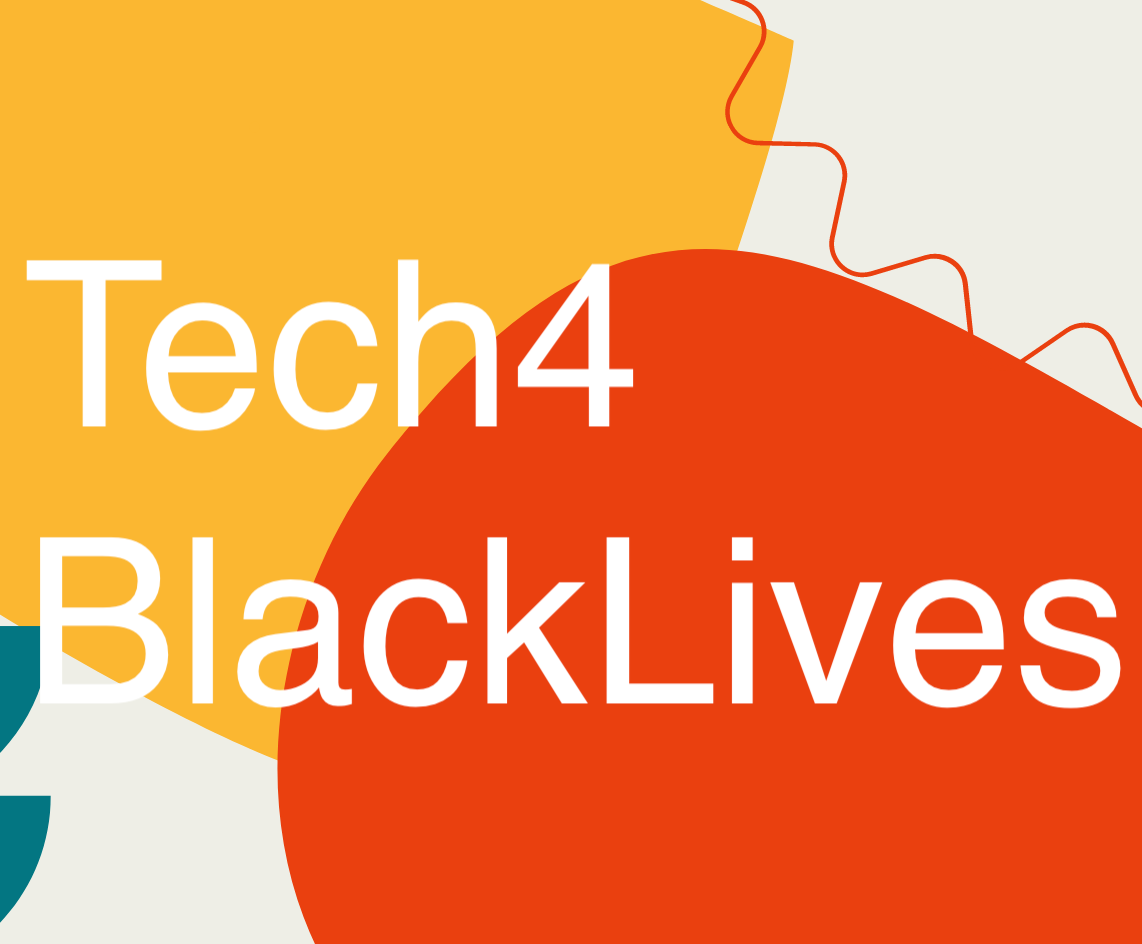Mission Statement
We are a research group at the Human-Computer Interaction Institute at Carnegie Mellon University. We study and design interactive technologies, games, and social computing systems to empower transformative experiences for individuals and their communities. Our cross-disciplinary approach blends theories and methods from psychology, design, and computer science. We seek to reimagine technologies and systems that promote empathy, self-expression, agency, and joy, especially for historically marginalized groups. We believe that new technologies, when designed with both mind and heart, can improve communication, collaboration, and conscientiousness. Playful technologies engage hearts and minds, preserve a sense of delight, and afford new ways of expressing ourselves and interacting with others.
